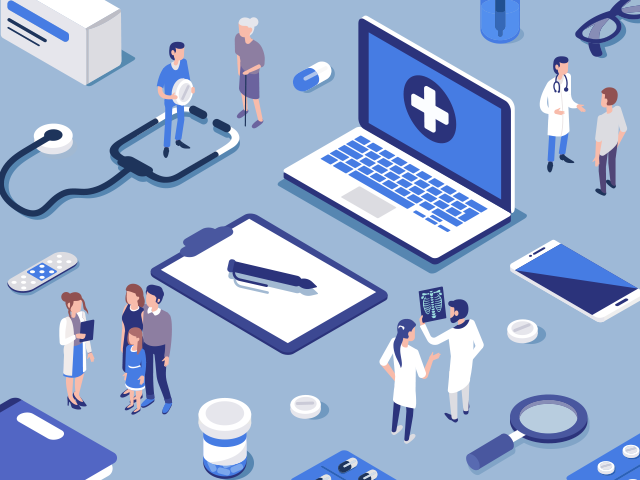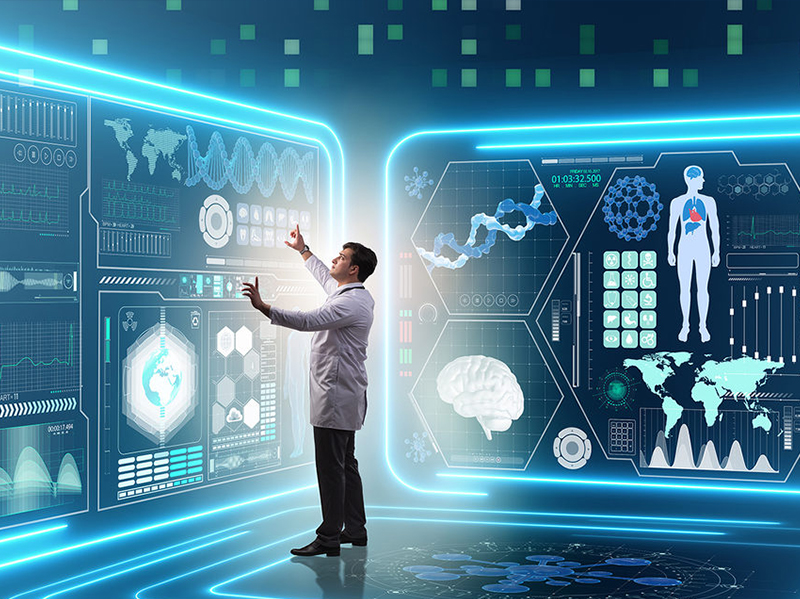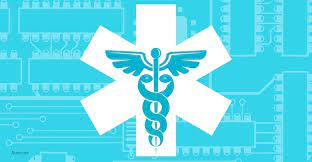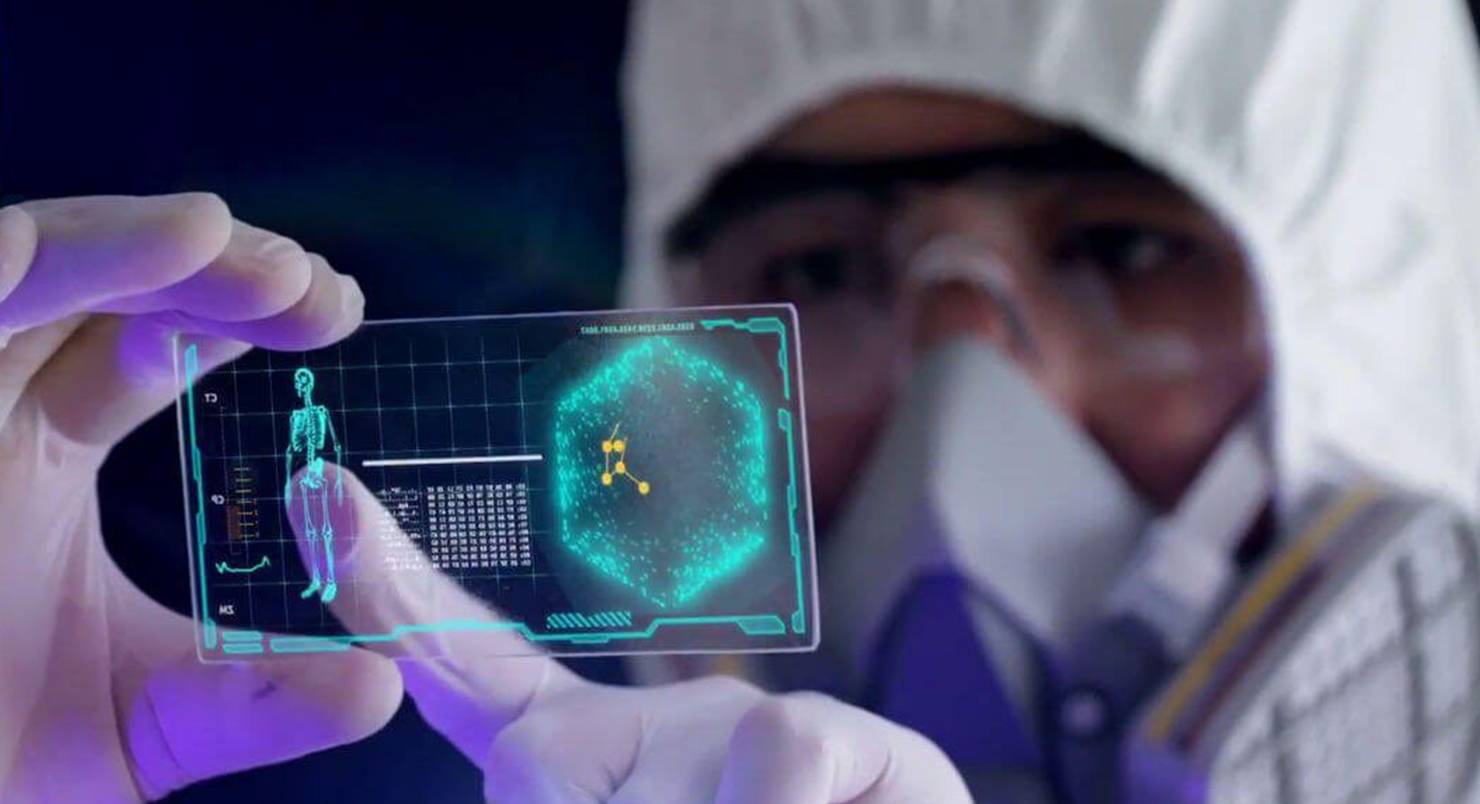Hello!
 Artificial intelligence has made great strides in healthcare. Over the last few years, computers have seen significant advancements. Modern computers can perform tasks such as interpreting data, analyzing, and solving problems.
Artificial intelligence has made great strides in healthcare. Over the last few years, computers have seen significant advancements. Modern computers can perform tasks such as interpreting data, analyzing, and solving problems.
Machine learning (ML), although widely used in many industries is still a new application of AI in healthcare. AI has recently moved from academia and research labs to hospitals.
AI can be used to evaluate risks and make informed diagnoses. It also performs precise surgical procedures. AI is used in all medical specialties, including rural care and surgery prioritization. It can also be used for drug discovery or survival analysis.
Artificial Intelligence in Healthcare – Important Patient Benefits
AI is a key area of healthcare that has seen significant benefits.
Public Health & Big Data
 AI excelled at analyzing big data from healthcare organizations. AI allows for rapid analysis of data. Data allows for proactive risk assessment and narrows gaps in public healthcare. It also explains how genetics, behavior, and environmental factors impact population health.
AI excelled at analyzing big data from healthcare organizations. AI allows for rapid analysis of data. Data allows for proactive risk assessment and narrows gaps in public healthcare. It also explains how genetics, behavior, and environmental factors impact population health.
Combining this information with diagnostic data gives AI a holistic approach to patient treatment protocols.
AI is an important tool for population studies. It can predict at-risk populations using genetic, behavioral, social, and other factors. AI has enormous potential in public health. Healthcare institutions are now using it to provide more personalized, data-driven healthcare to patients and improve outcomes.
Clinical Decision Making
 The differential diagnosis for any disorder in medicine is enormous. To get a definitive diagnosis, a differential diagnosis requires time, labor, money, and effort. This process has been greatly simplified by AI.
The differential diagnosis for any disorder in medicine is enormous. To get a definitive diagnosis, a differential diagnosis requires time, labor, money, and effort. This process has been greatly simplified by AI.
Machine learning algorithms are able to diagnose definitively faster than traditional methods and can do so with greater accuracy. AI has been used in clinical diagnosis to reduce errors and speed up treatment for serious medical conditions.
AI-enabled tools can search through large amounts of clinical data from patients. This can help in determining if treatment is necessary and can be used to initiate early treatment.
AI-Assisted Surgery
 Another area in which AI excels is in robotics surgery. Electronic technology has led to robots capable of performing delicate surgery. Although the surgeon is still in control of the robot, the robot can perform micro dissections and reach delicate areas that are impossible to access with the human hand.
Another area in which AI excels is in robotics surgery. Electronic technology has led to robots capable of performing delicate surgery. Although the surgeon is still in control of the robot, the robot can perform micro dissections and reach delicate areas that are impossible to access with the human hand.
Robot arms can move with precision and perform complex tasks on the brain or heart with pinpoint accuracy. This reduces blood loss and minimizes complications. All data from robotic surgeries can also be saved, which can aid in learning and training surgeons.
Accessibility and Better Healthcare Delivery
Rural residents often have difficulties accessing specialist care. People would need to travel long distances to get to specialists because of the lengthy wait times. Patients can be inconvenienced and it can lead to high costs.
 AI allows primary care physicians to evaluate patients with any type of medical disorder, regardless of whether they are in a city or rural area. AI robots can scan for eye disease and send images to specialists who will recommend a treatment. Patients can receive treatment immediately and the diagnosis can be made quickly.
AI allows primary care physicians to evaluate patients with any type of medical disorder, regardless of whether they are in a city or rural area. AI robots can scan for eye disease and send images to specialists who will recommend a treatment. Patients can receive treatment immediately and the diagnosis can be made quickly.
Primary care physicians can now effectively triage patients in rural areas who require urgent treatment or those that can be managed well by using AI.
In the end, rural residents can have access to digital AI infrastructure that allows them to receive faster care and state-of-the-art medical diagnoses.
Artificial Intelligence in Healthcare Helps to Reduce the Shortage of Specialists
 Although there are plenty of primary care doctors, specialists are not always available outside major cities. AI can help with diagnosis in low-resource areas by interpreting imaging studies such as chest x-rays and CT scans. PET scans are also helpful.
Although there are plenty of primary care doctors, specialists are not always available outside major cities. AI can help with diagnosis in low-resource areas by interpreting imaging studies such as chest x-rays and CT scans. PET scans are also helpful.
Primary Care Physicians don’t need to wait days or even weeks for a reading from the radiologist.
These images can be interpreted by AI with incredible accuracy. This means patients don’t have to wait for a diagnosis and saves a lot of time traveling back and forth from radiologists.
Optimize Efficiency
Healthcare institutions are complex, with many patients and huge amounts of data. They also have extensive interconnected systems and processes. This can lead to inefficiency, long wait times for patients, and even missed appointments.
 Data has shown that AI can rapidly scan through large amounts of patient information within the electronic medical records and ensure that no patient is forgotten or missed an appointment. AI can also prioritize services based upon available resources, and optimize workflows to improve revenue cycle performance.
Data has shown that AI can rapidly scan through large amounts of patient information within the electronic medical records and ensure that no patient is forgotten or missed an appointment. AI can also prioritize services based upon available resources, and optimize workflows to improve revenue cycle performance.
Both Inside and Outside of Healthcare Institutions, Artificial Intelligence is a Huge Part of Healthcare.
AI has enormous potential in healthcare, both within and outside of healthcare institutions. Hospitals are constantly facing financial challenges. AI can be used to compensate for rising healthcare costs and operational inefficiencies. AI and other technologies will improve the availability and delivery of medicine, as well as patient outcomes.
 AI is gaining popularity at all levels of healthcare. Large amounts of healthcare data can now be extracted and correctly analyzed. AI can read data and provide more insight into complex disorders. The AI can help doctors identify conditions and provide guidance for effective treatment strategies.
AI is gaining popularity at all levels of healthcare. Large amounts of healthcare data can now be extracted and correctly analyzed. AI can read data and provide more insight into complex disorders. The AI can help doctors identify conditions and provide guidance for effective treatment strategies.
Automated Machine Learning (AML), Aids Data Analysis Processes
Automated Machine Learning, or AML, is a great way to automate data analysis. AML is a method that automatically selects algorithms, visualizes the results, and provides better interpretation.
Data Analysis is More Precise in Guiding Decision Making
 Machine learning algorithms and processes can be used to make healthcare data more valuable to clinicians to aid in their decision-making. This can improve patient survival and mortality, as well as the diagnosis and treatment.
Machine learning algorithms and processes can be used to make healthcare data more valuable to clinicians to aid in their decision-making. This can improve patient survival and mortality, as well as the diagnosis and treatment.
Thank you!
Join us on social networks!
See you!






